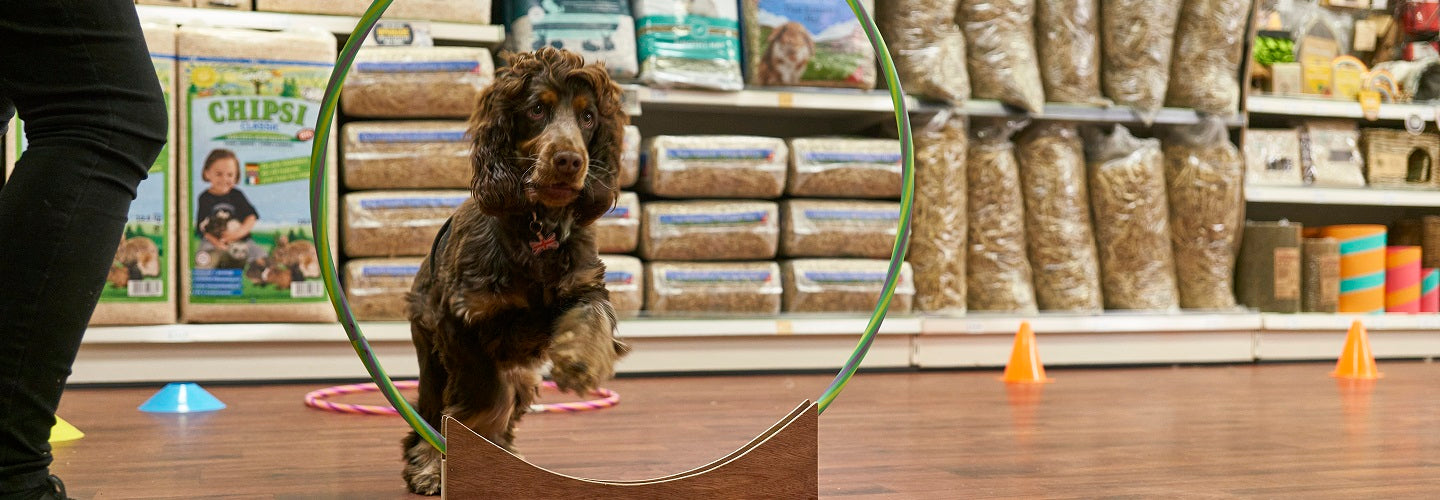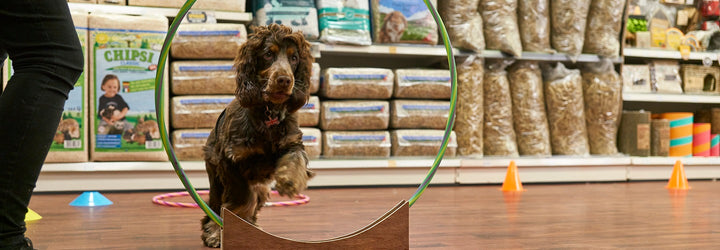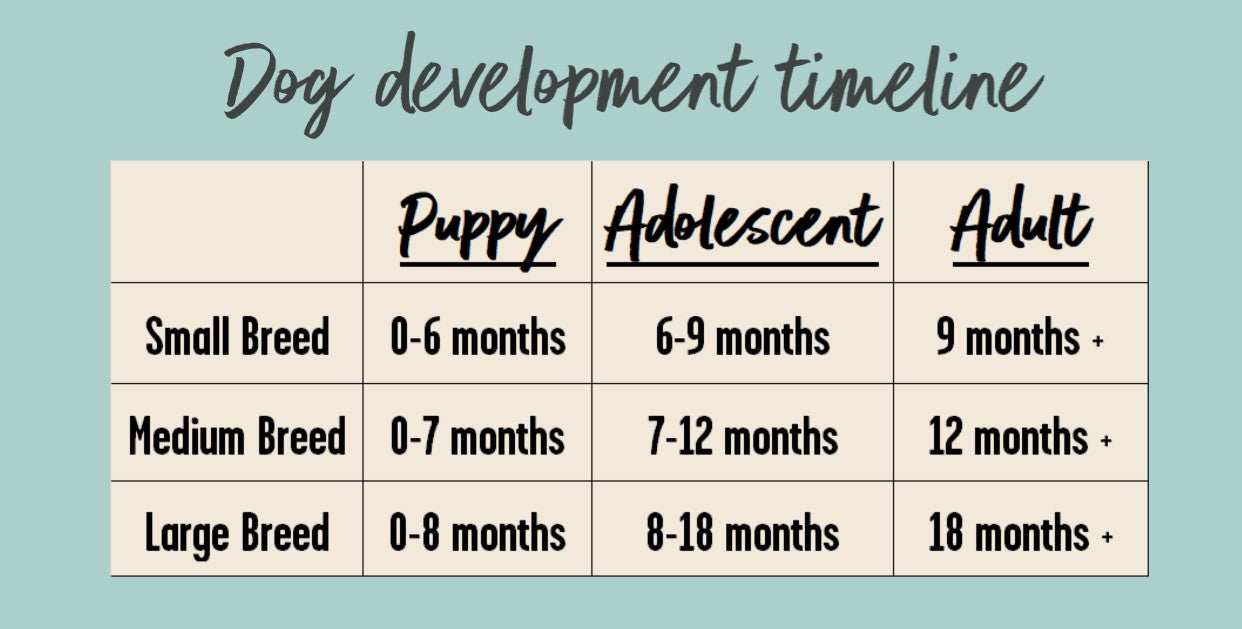

Posted by Steph Dainty, on
When and How to Start Training Your Puppy: The Pets & Friends Guide
Puppies are constantly learning as they grow from everything around them. From their environment to direct training- all these factors can impact your puppy’s development.
Our head trainer, Steph Dainty, has put together a guide on how and when to begin training your puppy to help them cope with their environment and be the goodest of dogs!
First of all, it’s important to be aware of your dog’s developmental timeline. These differ slightly depending on the breed of your dog, keeping these milestones in mind can help you plan your training effectively to deal with different behaviours as they grow.

Training your puppy should begin from the day you bring them home. Always speak to a qualified and accredited trainer on what pre- puppy class exercises would be best to do while your pup is too young to leave the house, or not fully vaccinated. Some light training exercises such as name training, little recalls and treat manners are a great way to start.
You can also begin crate training as soon as they come home, read our guide to crate training here.
A reputable breeder would have already begun some of the toilet training and command basics with your puppy, however moving them into a new home may cause a shift in their behaviour, so always reiterate their familiar commands and actions to help them settle in.
As soon as your puppy is fully vaccinated and cleared to leave the house by your vet- puppy classes can begin! We would recommend their first classes should be booked in before they reach 20 weeks.
How to toilet train your puppy
Whilst your puppy should have had some toilet training during their time with the breeder, reinforcing those commands and strategies are crucial once they’re in their new home. Steph’s top tips for success are:
- Take your puppy outside regularly in line with their daily routine, this will help them recognise that this is the time to go toilet. After each meal, big drink, playtime and after each nap. Early stages you want to give them the opportunity at least once per hour.
- Positive reinforcement is key! Calm, warm praise will help reward your pup. Treat from the offset, with praise and treats every time they go outside until you’ve gone at least a month without any accidents in the house.
- Learn their signals- much like babies and adults, pups will show regular signs of needing the toilet such as sniffing, circling, pacing, or whining and once you recognise these cues; outside they go.
- Be prepared for the occasional accident. Toilet training doesn’t happen overnight, and even the most well-trained pups may trip up. Remember, if your puppy does accident inside, simply clean up and carry on with an appropriate pet-friendly cleaner. Whilst you should avoid rewarding your pup, you should never punish them for toilet accidents as this may cause toilet anxiety.
Sleeping arrangements for your puppy
Much like crate training, sleep ‘training’ or creating boundaries for bedtime can be taught as soon as they get home. You can read our guide to puppy sleeping arrangements online here.
If you’re looking for more advice on puppy training or want to enrol in the Pets & Friends training sessions, you can call your local store for availability. Or speak to one of our pet experts using the Pets Chat system.
